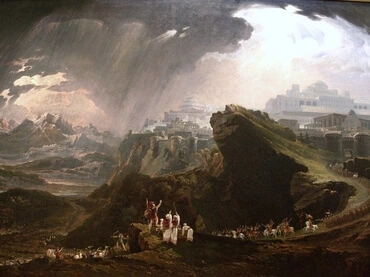1
Y tuvo también suerte la tribu de Manasés, porque fue primogénito de José. Maquir, primogénito de Manasés, y padre de Galaad, el cual fue hombre de guerra, tuvo a Galaad y a Basán.
2
Tuvieron también suerte los otros hijos de Manasés conforme a sus familias: los hijos de Abiezer, y los hijos de Helec, y los hijos de Asriel, y los hijos de Siquem, y los hijos de Hefer, y los hijos de Semida; éstos fueron los hijos varones de Manasés hijo de José, por sus familias.
3
Pero Zelofehad, hijo de Hefer, hijo de Galaad, hijo de Maquir, hijo de Manasés, no tuvo hijos, sino hijas, los nombres de las cuales son éstos: Maala, Noa, Hogla, Milca, y Tirsa.
4
Estas vinieron delante de Eleazar sacerdote, y de Josué hijo de Nun, y de los príncipes, y dijeron: El SEÑOR mandó a Moisés que nos diese herencia entre nuestros hermanos. Y él les dio herencia entre los hermanos del padre de ellas, conforme al dicho del SEÑOR.
5
Y cayeron a Manasés diez suertes a más de la tierra de Galaad y de Basán, que está al otro lado del Jordán;
6
porque las hijas de Manasés poseyeron herencia entre sus hijos; y la tierra de Galaad fue de los otros hijos de Manasés.
7
Y fue el término de Manasés desde Aser hasta Micmetat, la cual está delante de Siquem; y va este término a la mano derecha, a los que habitan en En-Tapúa.
8
Y la tierra de Tapúa fue de Manasés; pero la Tapúa que está junto al término de Manasés, es de los hijos de Efraín.
9
Y desciende este término al arroyo de Caná, hacia el mediodía del arroyo. Estas ciudades de Efraín están entre las ciudades de Manasés; y el término de Manasés es desde el norte del mismo arroyo, y sus salidas son al mar.
10
Efraín al mediodía, y Manasés al norte, y el mar es su término; y se encuentran con Aser a la parte del norte, y con Isacar al oriente.
11
Tuvo también Manasés en Isacar y en Aser a Bet-seán y sus aldeas, e Ibleam y sus aldeas, y los moradores de Dor y sus aldeas, y los moradores de Endor y sus aldeas, y los moradores de Taanac y sus aldeas, y los moradores de Meguido y sus aldeas; tres provincias.
12
Mas los hijos de Manasés no pudieron echar a los de aquellas ciudades; antes el cananeo quiso habitar en la tierra.
13
Pero cuando los hijos de Israel tomaron fuerzas, hicieron tributario al cananeo, mas no lo echaron.
14
Y los hijos de José hablaron a Josué, diciendo: ¿Por qué me has dado por heredad una sola suerte y una sola parte, siendo yo un pueblo tan grande y que el SEÑOR me ha así bendecido hasta ahora?
15
Y Josué les respondió: Si eres pueblo tan grande, sube tú al monte, y corta para ti allí en la tierra del ferezeo y de los gigantes, pues que el monte de Efraín es angosto para ti.
16
Y los hijos de José dijeron: No nos bastará a nosotros este monte; y todos los cananeos que habitan la tierra de la campiña, tienen carros herrados; los que están en Bet-seán y en sus aldeas, y los que están en el valle de Jezreel.
17
Entonces Josué respondió a la casa de José, a Efraín y Manasés, diciendo: Tú eres gran pueblo, y tienes gran fuerza; no tendrás una sola suerte;
18
mas aquel monte será tuyo; que bosque es, y tú lo cortarás, y serán tuyos sus términos; porque tú echarás al cananeo, aunque tenga carros herrados, y aunque sea fuerte.







